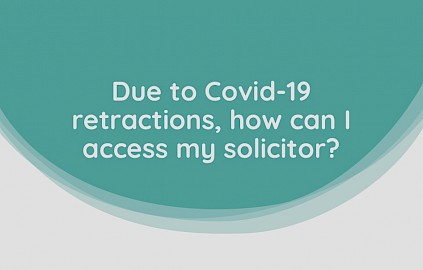Why are diabetes negligence claims common in the UK?
Dibetes figures provided by the NHS state there are 3.9 million people living with diabetes in the UK. That’s more than one in 16 people in the UK who has diabetes (diagnosed or undiagnosed). This figure has more than doubled since 1996 when there were 1.4 million. By 2025, it is estimated that five million people will have diabetes in the UK.
Clearly, the fact that people are living longer has contributed, and the rising population number. However, poor lifestyle choices - being sedentary and consuming processed sugar etc - are major contributing factors.
The sheer volume of diabetes patients in the UK means that inevitably there are diabetes claims as a result of poor care.
In the most severe cases, a patient can lose their eyesight, or a kidney, or a limb (through having to have an amputation). Clearly, such severe injuries have permanent life-changing consequences. Victims of this type of medical negligence for failure to manage diabetes will need compensation to help them to cope for the rest of their lives.
Is diabetes curable?
Unfortunately, once a person has developed diabetes, it is generally not a curable condition. Some patients may find it goes into remission if they start to look after themselves properly by exercising, eating healthily, and managing their weight. Some patients can see their Type 2 diabetes improve after bariatric surgery. However, for others, management has to be by either taking medication every day in tablet form, or by way of insulin injections.
It is extremely important that health care providers properly monitor patients who are clearly at risk of developing diabetes, and those who have already been diagnosed. This is because the condition of diabetes can worsen, leading to more aggressive treatment being required (such as moving from diet control to diet control and tablets or moving from tablets to injections) and failure to pick up on this can have the most serious consequences, even sudden death.
This is not scare-mongering. A high blood sugar level is actually poisonous to the human body. This can be particularly damaging to small blood vessels, for example, supplying eye-sight. Badly controlled diabetes can also lead to problems in the outer parts of a person’s limbs, which is why diabetic patients are at higher risk of amputation than the ordinary population. This can start with a simple case of a cut, or blister that refuses to heal. This is because there is no longer a good blood supply to the outer extremities.
Elderly patients are particularly vulnerable
We have acted in various cases where elderly patients have been neglected, leading to cuts, or blisters on their toes. These eventually turned into gangrenous wounds. The patients end up being rushed to a hospital. By this stage, it is usually too late to save them from having to undergo an amputation. This may be of a toe or even all of the toes and part of their foot. For patients suffering serious injuries, clearly it is important they have access to justice. They should bring a diabetes negligence claim.
Doctors are under a reasonable duty of care to pay proper attention to injuries suffered by diabetic patients and to take into account their risk of poor healing, to avoid further complications occurring.
Practical advice to avoid diabetes claims
Of course, patients should also be educated by their doctor in how to monitor their own blood glucose levels. They should also be educated about the importance of monitoring their own blood glucose levels every day.
If you, or a loved one, is diabetic, don’t allow yourselves to be lulled into a false sense of security just because all seems to be well and then stop seeing to the daily monitoring. You will just never know when things may change, and by then it may be too late to avoid an irreversible injury. Such injuries can lead to an inability to drive, work, or even to look after yourself on a daily basis without care from someone else. No one wants to end up in that position!
Please don’t miss your regular GP check-ups and blood tests and please don’t forget your annual visit to the opticians. Your optician should be advised about your diagnosis of diabetes and should monitor the tiny vessels in your eyes for any early signs of change that need to be acted upon to ensure your eyesight is preserved.
Support for Diabetes
In addition to compensation, you may require various forms of support for your diabetes, such as emotional, practical, or even financial assistance. If that's the case, our web page provides crucial information on where to find the support you need.
Choosing a solicitor to make a claim for diabetes mismanagement
Do contact our friendly team of specialist lawyers at Medical Solicitors. We conduct most of our Clinical and Medical Negligence claims under ‘No Win, No Fee’ agreements, also known as Conditional Fee Agreements. Our clients do not have to worry about the cost of diabetes compensation claims. You have nothing to lose in speaking to us.









